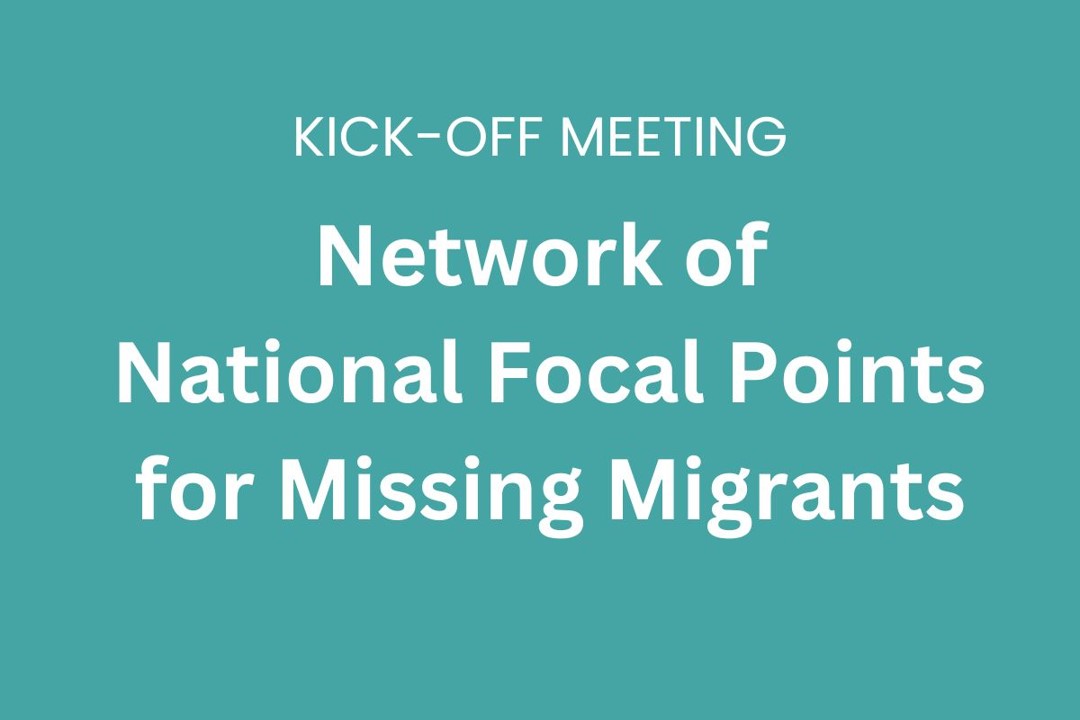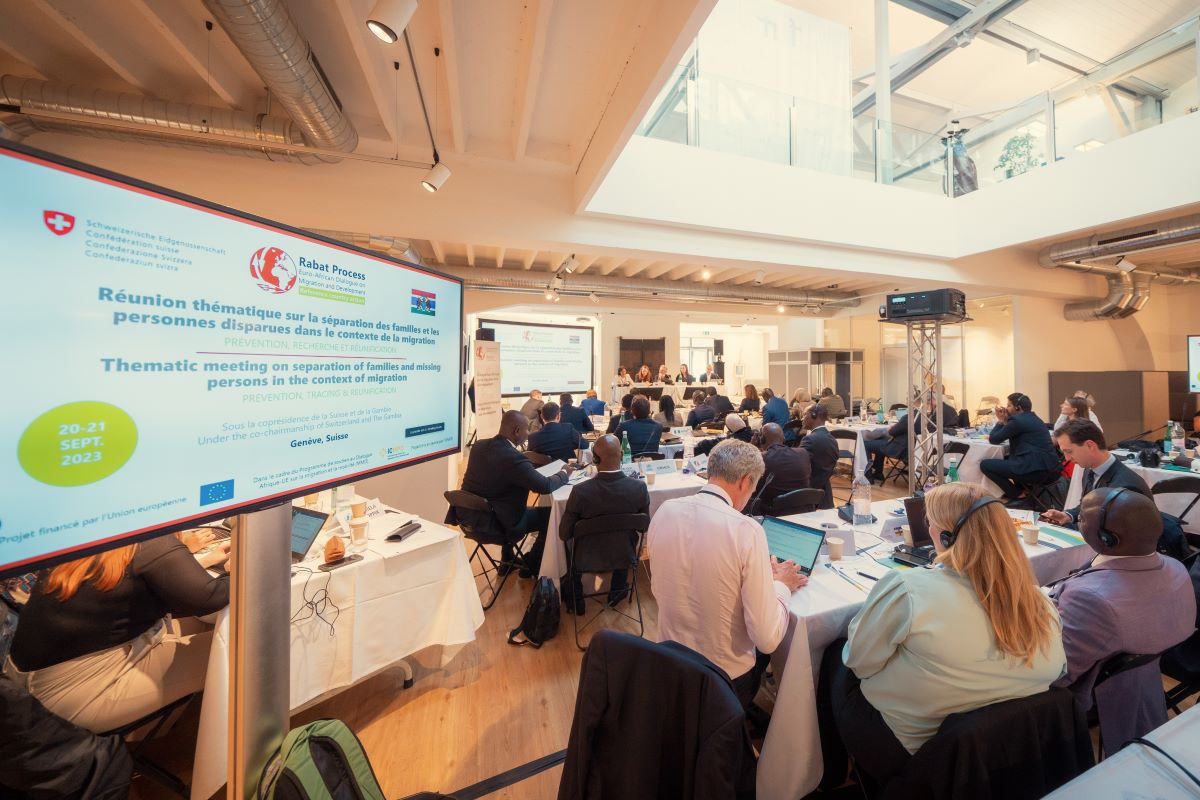On 18th of July 2024, the International Committee of the Red Cross (ICRC) organised the kick-off meeting of the Network of National Focal Points for Missing Migrants, co-convened by Switzerland and the Gambia, and supported by the Rabat Process Secretariat. This online meeting brought together newly appointed National Focal Points for missing migrants, to discuss the establishment of the network, its objectives, and the path forward for collaborative efforts.
Fostering transnational cooperation on missing migrants
In September 2023, Switzerland, together with the Gambia, co-hosted a Thematic Meeting on “Family Separation and Missing Persons in the context of migration” in Geneva, Switzerland. It explored the challenges, good practices and experiences in preventing deaths, tracing missing migrants and reunifying separated families.
Drawing from these discussions, the recommendation of setting up a network of National Focal Points to enhance cross-border and transnational cooperation was officially endorsed. Consequently, the ICRC established the network at the beginning of 2024. As of the end of July 2024, 15 partner countries of the Rabat Process have officially nominated a National Focal Point for Missing Migrants.
The objectives of this network are three-fold:
- Facilitate transnational coordination and information-sharing;
- Participate in multilateral discussions on policy/cooperation;
- Identify common challenges and exchange experiences.
Sharing challenges and best practices for effective coordination
Over 40 participants attended this kick-off meeting, including the nominated national focal points and representatives from 22 partner countries of the Rabat Process, as well as delegates from relevant international organisations. Meeting for the first time under this initiative, they exchanged views on the key challenges, experiences, and best practices in the field of missing migrants.
Following a framing introduction by the International Organization for Migration’s (IOM) Missing Migrants Project, and a presentation on successful actions by the ICRC, participants discussed pressing challenges. Key topics included data collection and sharing, identification of recovered bodies, the lack of harmonized/centralized databases, communication with families and cross-border cooperation. Some partner countries also presented their existing national systems and ongoing innovative initiatives, such as the establishment of humanitarian service points with the support of the Red Cross as a measure to prevent migrants from going missing. The collection of testimonies from co-travellers, the setting-up of an inter-agency coordination mechanism at national level as well as the swift cooperation between consular services and the countries of transit/destination were also mentioned as good practices facilitating the search and identification of missing migrants.
Finally, the ICRC, the IOM and the United Nations High Commissioner for Refugees (UNHCR) committed to contributing their expertise and technical support to partner countries of the Rabat Process. Their involvement will focus on critical areas, including forensics, data analysis, search and identification, support in setting-up programmes to address the needs of affected families and effective communication with local communities. As emphasised by the IOM during the meeting, the appointment of National Focal Points is crucial to catalyse government action to prevent the loss of human life and clarify the fate of missing persons. The ICRC also encouraged partner countries to engage and maintain dialogue with civil society (including National Red Cross Red Crescent Societies), to foster mutual benefits.
The meeting reflected the commitment to a multi-stakeholder, integrated and transnational approach necessary to address the issue of missing migrants in an effective, coordinated and timely manner.
Next steps for the network
The meeting also served as an opportunity to define the path forward for the Network of national focal points for missing migrants. The participants agreed to meet regularly to ensure active and effective collaboration among network members. A second meeting will be organised tentatively in November 2024 and aim to solidify ongoing discussions and initiatives. It will notably take stock of the answers to the questionnaire distributed to participants, aimed at identifying processes and institutions in their respective countries, that are relevant to preventing and resolving cases of missing migrants and providing support to affected families.
In addition, the question of missing migrants will be further addressed at a follow-up Thematic Meeting, scheduled to take place in Banjul, The Gambia, in 2025, under the upcoming Nigerian chairmanship of the Rabat Process. Appointed focal points on missing migrants will be invited to participate alongside regional and international organisations.






